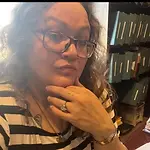Be a Transformative Educator Teaching College in a Prison
Breaking the Silence: How Education and Language Empower Incarcerated Voices to Rise

Incarcerated individuals are still silenced today and denied access to higher education, expression, and platforms where their voices matter.
We see this in courtrooms where language is weaponized, in schools where dialects are corrected instead of honored, and in prisons where silence is mistaken for rehabilitation. But even in these places, language finds a way. A note passed in a dorm. An assignment scribbled on commissary paper. A word is spoken in rhythm under breath. Even behind bars, speech rises like the sun.
Something powerful happens when a person, long silenced, is given the space to speak—without judgment, without interruption. I have seen the shaky beginnings in the eyes of incarcerated students who read their writing aloud for the first time. The pause before a truth long buried is voiced. And then, the shift.
The weight of that word is taking root—the dignity in that pause. The applause is not for grammar but for courage. In those moments, education becomes more than information transfer—it becomes soul restoration.
Why do I listen closely? Why I believe in the ripple effect of one story told honestly. Because the dawn of speech is not something that happened once—it happens every time someone reclaims their voice after being told they have none.
In carceral education, language is not just academic. It’s revolutionary. It’s how a student begins to understand systems—not just how they work, but how they were designed to exclude. It’s how students learn that they are not broken but brilliant. That their experiences are valid. That their pain has a name, and their dreams have language.
In every classroom I’ve entered inside correctional facilities, I have witnessed the dawn of speech repeatedly: in essays, business plans, and metaphors that reveal trauma too deep for direct speech. The words are often raw. Unfiltered. Sacred.
When language evolves from survival to storytelling, something shifts. We move from enduring life to narrating it. And narration is power. The words of the silenced and the returned. The language of hope and rage. The sentences that shaped, confined, and liberated. The dawn of speech is not just historical—it is personal. Every time we speak truth in the face of erasure and name our wounds and worth, we awaken that ancient right again.
So let us begin here:
With a breath,
A word,
A whisper of presence.
In the prison classroom, we often witness a personal dawn of speech. The moment a student speaks in class for the first time. The moment a poem is read aloud. Speech is freedom, especially in places designed to silence. When students speak, they reclaim what systems tried to strip away: agency, presence, and belief in their worth. We talk about how language builds reality. And how silence, too, can speak volumes. Students learn to speak for themselves and their communities, families, and younger selves, who were never allowed a voice. The dawn of speech in the classroom is quiet. It comes through trust, repetition, and the slow unlearning of shame. And it comes through deep listening to each other, us, and the echoes of what was once too dangerous to say. In every sentence spoken in a prison classroom, we hear not just a voice—but a rising. The dawn of speech is the beginning of healing. Of hope. Of power returned. And in that first word—trembling, uncertain, actual—there is a world reborn.


